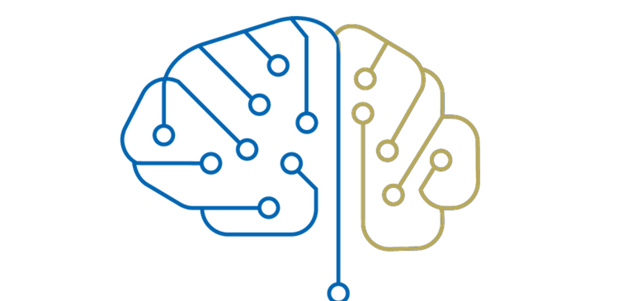
The field of AI traces its roots to a 1956 summer workshop held at Dartmouth College in New Hampshire, USA. The Dartmouth Summer Research Project on Artificial Intelligence brought together a small group of mathematicians and scientists over a two-month period to study how machines can simulate human intelligence.
While the field is relatively new, the idea of mimicking human cognitive functions such as learning and problem solving has captured the imagination of people in all corners of the globe for millennia.
But underlying this quest to create “thinking machines” has run a longstanding fear of being outdone by them – and today is no different.
This is particularly true when it comes to the workplace. As AI has made progress in leaps and bounds in recent years, there is growing concern about the impact it will have on the working population.
With the aim of informing the debate surrounding AI and work, Muriel Pénicaud, the French minister of labour, and Mounir Mahjoubi, the secretary of state for digital affairs, asked France Stratégie to look at its impact on work in France.
Adapting to automata
For the moment, AI has only a limited presence in the workplace. But this is set to change, with the development of techniques such as deep learning, where machines can learn from data representations as opposed to relying on algorithms for specific tasks. This technology can be used for things such as recognizing images or carrying out quality translations of basic texts and is already in use in smartphones.
Low-skilled jobs that require manual and repetitive tasks and can be automated relatively easily by robots are certainly at risk of falling victim to AI. There is a fear this could exacerbate inequality by reinforcing a two-tier society of on the one hand an elite high-skilled group, relatively unscathed by AI, and on the other a low-skilled group at risk of seeing their jobs automated and with limited prospects of improving their skills.
But the report shows this is only part of the picture. The technology has progressed to a point where it is impacting all jobs, skilled and unskilled alike. A recent example of this is a US company that has developed algorithms that detect and classify lung nodules more efficiently than radiologists.
The report’s authors, economists Salima Benhamou and Lionel Janin, stress this transformation is not much different from that which took place with the advent of the internet and the digital revolution. Three sectors the report looks at in detail – retail banking, transport and healthcare – have all adapted to digitisation by changing job descriptions, training workers and developing new businesses.
It points to the German automobile industry, one of the most robotised in the world, as an example of honing worker skills to successfully adapt to automation: in 2016, it employed more than 800 000 workers, 100 000 more than two decades ago.
A matter of time
Even if workers adapting takes some time, for the moment the relative cost and productivity of robots has not yet reached a point where it is evident companies should turn to artificially intelligent machines. Regulatory measures also play a major role in this process. But at a certain point, this will inevitably change as robots become cheaper over the coming decades.
Benhamou and Janin highlight that what is new is that AI has reached a tipping point of sorts: machines can now draw on massive amounts of combed data to learn continuously. This virtuous circle will, at some point down the road, lead to a veritable technological breakthrough.
Self-driving vehicles are exemplary of this trend. Sooner or later, professional drivers will start being made redundant by AI. Examples they detail in banking and healthcare include chatbots that advise bank clients and robotised medical assistants that monitor patient health and well-being, pre-diagnosing and proposing therapeutic care.
But new opportunities are certain to spring up. Whether it’s maintaining and managing fleets and accompanying passengers in transport, for example, new jobs will be created. This has always been the case when the labour market undergoes a profound mutation.
The report lays out three ways France can rise to the challenges that AI poses for the 21st century workplace: carry out research on AI’s potential to provide employees, employers and other stakeholders with the information necessary to anticipate changes; train workers in AI, raising awareness of related technical, legal, economic and ethical issues; and reinforce job security for the sectors at risk of being particularly affected by AI.
Though the impact of AI is likely to spare none in the workforce – be they unqualified or highly qualified – it will almost certainly place a premium on social skills and human creativity, a trend already underway in advanced knowledge-based economies. And it will inevitably lead to productivity gains, which if shared can benefit all workers.
Ultimately, a thinking machine’s value lies in the knowledge we humans provide it with and how we interact with it, not in the machine itself. As long as workers remain agile and trained, AI has the potential to be a boon for the job market. But governments, business and academia must all work to prepare the current and future workforce for the massive changes in store.





